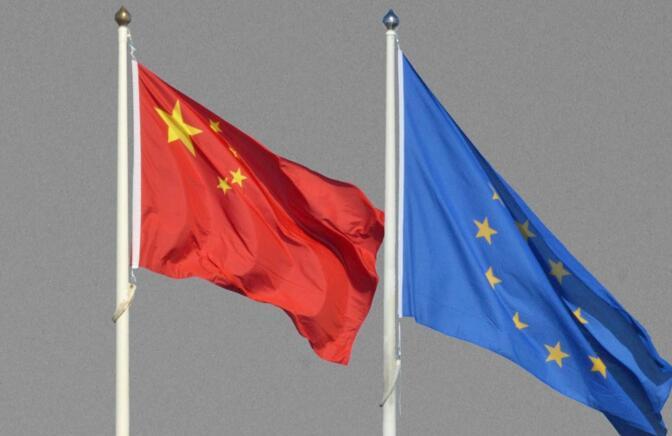BEIJING, April 3 (Xinhua) -- China and Europe should work together to safeguard multilateral order that has been under pressure at the moment, said experts from the Brussels-based research center Carnegie Europe.
"We are partners," Pierre Vimont, former French ambassador to the United States and senior fellow at Carnegie Europe, said. He picked "partnership" as a keyword to describe today's China-Europe relations, while acknowledging sporadic minor disagreements.
Noting that many geopolitical issues and political crisis linger around the world, Vimont said China and Europe could certainly work together because both sides "see eye to eye to a large extent on many of the issues."
"It's about improving our partnership," he added.
As the United States now treats Europe as an economic competitor, Europe realizes that this new world is going to be "competitive," and that is why Europe adjusted its rhetorical emphasis on foreign policies from the word "commission" to "competition," said Tomas Valasek, director of Carnegie Europe.
But "it doesn't change the fact that Europe and China are mostly partners and mostly cooperating," Valasek added.
Speaking on cooperation, the Carnegie experts highlighted the importance for China and Europe to join hands in safeguarding multilateralism.
Vimont said the liberal order has been put under pressure due to various challenges, which made it prominent for China and Europe to work together to "improve the efficiency of the multilateral order."
One problem is that the United States once promoted the liberal order for years, whereas it now seems less interested in it, the former ambassador said.
If China and Europe "start thinking together and trying to improve together the things as they are, maybe it will help America think again to come back to the mainstream of those who support the multilateral order," he added.
Vimont believes that the European Union is a multilateral body in favor of multilateralism. He recalled Chinese President Xi Jinping's speech at Davos about two years ago, when he was impressed that China was very supportive of multilateralism.
"There is a natural alliance," he said.
The expert pointed out a string of other areas where China and Europe could deepen their cooperation, including climate change, new technology, artificial intelligence, data protection and issues related to social inequalities.
Vimont and Valasek both hailed the signing of a memorandum of understanding in March on jointly advancing the construction of the Belt and Road Initiative (BRI) between China and Italy.
Everybody is ready to conduct business and build a very strong partnership with China, Valasek said.
"This is a huge market," he said. "The Europeans want to be there."
Valasek considered geography very important to the BRI cooperation for Europe. There were gaps, particularly in terms of infrastructure, in some parts of Europe, where "countries are going to work with China most closely," he said.
When the world is undergoing profound changes unseen in a century, Europe, as the experts said, should "adapt" to and "re-balance" itself in the new situation.
The past decade was difficult for Europe with social inequalities, populist waves and social unrest being major challenges, but Asian countries, especially China, have achieved better performance, Vimont said.
Valasek attributes Asia's faster growth to its better choices, including opening-up, adding that Europe to some extent has open arms, "so the idea is not (to) block China's way, but for all of us to (gain) benefits."




 A single purchase
A single purchase









